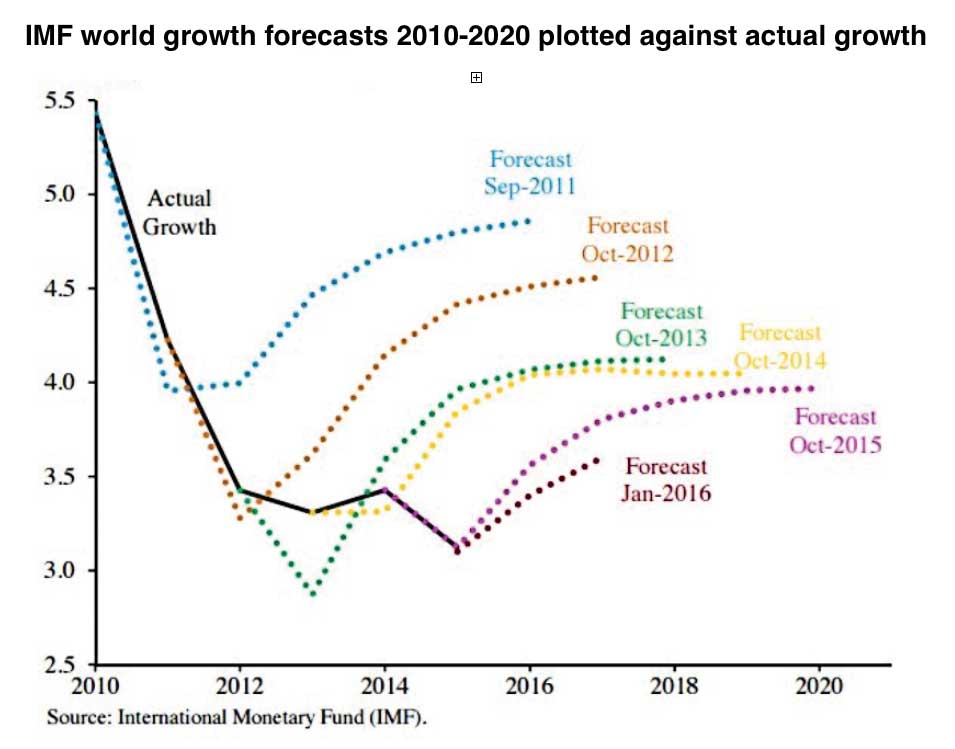Thomas Piketty proposes a “A New Deal for Europe”
“The far right has surged in just a few years from 15 percent to 30 percent of the vote in France, and now has the support of up to 40 percent in a number of districts. Many factors conspired to produce this result: rising unemployment and xenophobia, a deep disappointment over the left’s record in running the government, the feeling that we’ve tried everything and it’s time to experiment with something new. These are the consequences of the disastrous handling of the financial meltdown that began in the United States in 2008, a meltdown that we in Europe transformed by our own actions into a lasting European crisis. The blame for that belongs to institutions and policies that proved wholly inadequate, particularly in the eurozone, consisting of nineteen countries. We have a single currency with nineteen different public debts, nineteen interest rates upon which the financial markets are completely free to speculate, nineteen corporate tax rates in unbridled competition with one another, without a common social safety net or shared educational standards—this cannot possibly work, and never will.
Only a genuine social and democratic refounding of the eurozone, designed to encourage growth and employment, arrayed around a small core of countries willing to lead by example and develop their own new political institutions, will be sufficient to counter the hateful nationalistic impulses that now threaten all Europe.”
Wolfgang Münchau argues in the FT that the “Concessions to Britain will create a two-tier Europe”
“Their single most important concession is their agreement, for the first time, to a two-tier Europe. This is not an opt-out, an exemption or a derogation. This is not a Europe of variable speeds or variable geometry — expressions that have been used in the past to denote different degrees of integration. This is a formal exemption from the goal of ever-closer union. I am not sure whether this has any legal significance but it matters as a political statement.
In depth
How can the EU pursue ever-closer union when one of its most important EU members enjoys a permanent exemption? Core-Europe projects — those pursued by only a subset of members — cannot be the answer. They did not work well in the past. The EU has a legal mechanism in place that would allow a minimum of nine countries to seek deeper integration among each other. If you divide a union you end up with disunion. You cannot have it both ways.”
Czech Republic’s Prime Minister Bohuslav Sobotka sees ‘Czexit’ debate if Britain leaves EU’
Czech prime minister said on Tuesday (Feb 23) he expects a debate on his country leaving the European Union if Britain chooses to quit the 28-member bloc in a June referendum.
Three-fifths of Czechs said they were unhappy with EU membership and 62 per cent said they would vote against it in a referendum, according to an October 2015 poll by the STEM agency.
“If Britain leaves the EU, we can expect debates about leaving the EU in a few years too,” leftist Bohuslav Sobotka told the CTK news agency. Britain will hold a referendum on leaving the EU on June 23.
“The impact may be really huge,” he said, adding that a “Czexit” could trigger an economic and security downturn and a return to the Russian sphere of influence.
Jack Schickler argues that “Gove’s anti-EU argument more fury than fact”
“Michael Gove has been widely praised for writing a well argued essay explaining why Britain should quit the EU. The justice minister’s case is actually full of misleading examples and downright contradictions.”
Ronald Brownstein of The Atlantic looks at the “The New Shape of the Republican Race”
In a detailed analysis of the Republican primary results so far he looks at the source of Trump’s success and argues that:
“Trump’s core asset—and the key to his performance among evangelicals—remained his extraordinary hold on working-class Republicans. In South Carolina, Trump won fully 42 percent of white GOP primary voters without a college degree-exactly the same imposing percentage he carried in New Hampshire. In South Carolina, Trump won almost exactly as many non-college whites as Cruz (24 percent) and Rubio (17 percent) combined. In New Hampshire, Trump carried more non-college whites than his next three closest competitor combined. Only in Iowa did Cruz narrowly edge Trump among working-class whites.
All week in South Carolina, Trump courted those working-class white voters by sharply raising the volume on his criticism of free trade and his warnings about the threat from Islamic terrorism.”
John Michael Greer looks at the “The Decline and Fall of Hillary Clinton”
“If anything, though, Hillary Clinton’s campaign offers an even clearer glimpse into the festering heart of the American political process. She did exactly the same things that Jeb did—it’s indicative that the two of them both splashed their first names across their equally banal campaign logos—and she also managed, as he never did, to get the apparatchiks of her party lined up solidly on her side before the campaigning season got under way. By the ordinary rules of US politics, she should have enjoyed a leisurely stroll through the primaries to the Democratic convention while Jeb Bush wrestled with his opponents, and then gone into the general election with plenty of money to spare, saturating the air waves with a deluge of advertisements designed to convince the American people that four years under her leadership would be ever so slightly less disastrous for them than four years under Bush.
This time, though, the rules have changed.”
A graph that shows why we should be cautious in accepting the proposition that the IMF know what the fuck they are talking about.
Tom Perry, Laila Bassam, Jonathan Landay and Maria Tsvetkova from Reuters have an analysis piece entitled “The road to Aleppo: how the West misread Putin over Syria”
“……it took until mid-September for Western powers to fully recognize Russia’s intentions. One of the final pieces of the puzzle was when Moscow deployed aircraft flown only by the Russian military, eliminating the possibility they were intended for Assad, the official said.
An earlier understanding of Russia’s military plans is unlikely to have changed U.S. military policy. President Barack Obama had made clear early on that he did not want Washington embroiled in a proxy war with Russia. And when the West did wake up to Russian President Vladimir Putin’s intentions, it was short of ideas about how to respond.
As in Ukraine in 2014, the West seemed helpless.
French President Francois Hollande summed up the mood among America’s European allies: “I would prefer the United States to be more active. But since the United States has stepped back, who should take over, who should act?”
Yanis Varoufakis say its “Democracy or Bust in Europe”
“Why is Europe disintegrating? And what can be done about it?
The answer lies in the EU’s origins. The EU began life as a cartel of heavy industries determined to manipulate prices and redistribute monopoly profits through a bureaucracy located in Brussels. To fix prices across European borders, there was a need to fix exchange rates as well. During the Bretton Woods era, the Unites States provided this “service.” But as soon as the US ditched Bretton Woods in the summer of 1971, the Brussels-based cartel’s administrators began to design a European fixed exchange-rate system. After a series of (often spectacular) failures, the euro was born to superglue exchange rates together.
As with all cartel managers, the EU technocrats treated genuine pan-European democracy as a threat. Patiently, methodically, a process of de-politicizing decision-making was put in place. National politicians were rewarded handsomely for their acquiescence, while anyone opposed to the cartel’s technocratic approach was labeled “un-European” and treated as an outsider.
Thus, although European countries remained democratic, the EU institutions, where sovereignty over crucial decisions was transferred, have remained democracy-free. As Margaret Thatcher explained during her last Parliamentary appearance as British Prime Minister, who controls money and interest rates controls the politics of Europe.”
It looks like my cup of tea has been saved by the threat of Brexit.
The introduction of mandatory absurd, authoritarian and pointless ‘eco’ rules, such as the enforced lowering of power consumption in vacuum cleaners, wins the EU few friends. Why on earth is it the concern of a pan-European political body how much electricity I use when I hoover? Not satisfied with making me use an under powered vacuum cleaner the EU has been planning to impose new restrictions on the electricity consumption of kettles, toasters and hairdryers.
A senior EU official told the Financial Times that the Commission shelved an extension of the EU’s eco-design rules because it was ‘sensitive to the British obsession with water kettles’. A special unit monitoring British issues led by the Eurocrat Jonathan Faull, who was part of David Cameron’s team negotiating the deal on Britain’s EU membership, is understood to have raised the issue.


